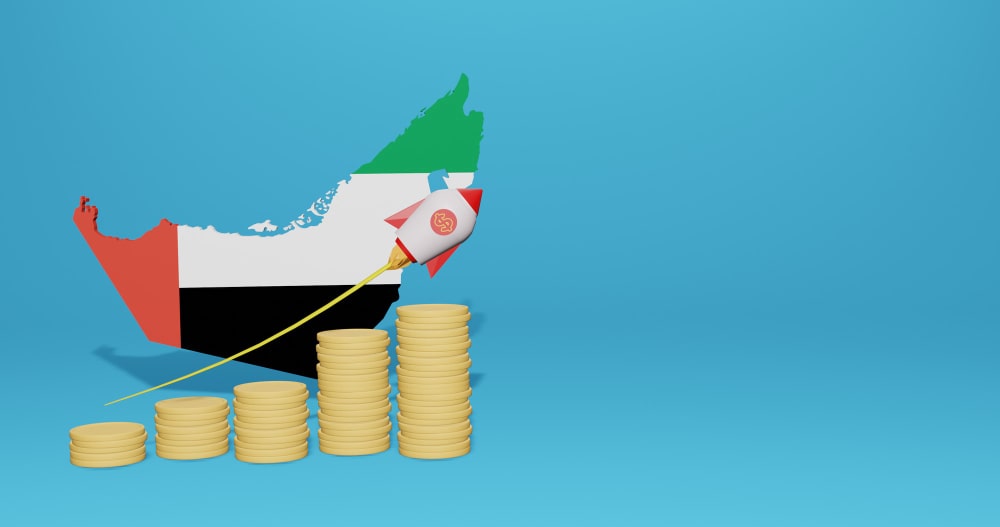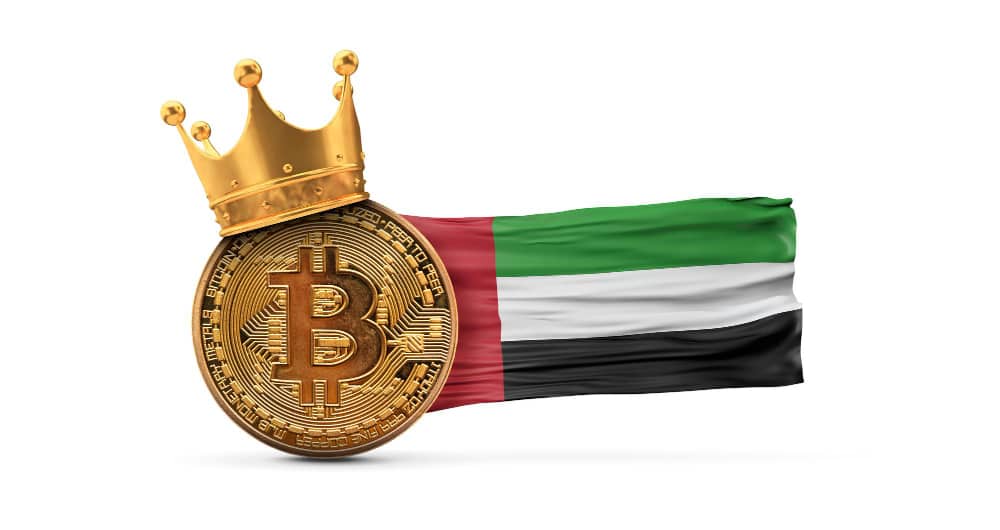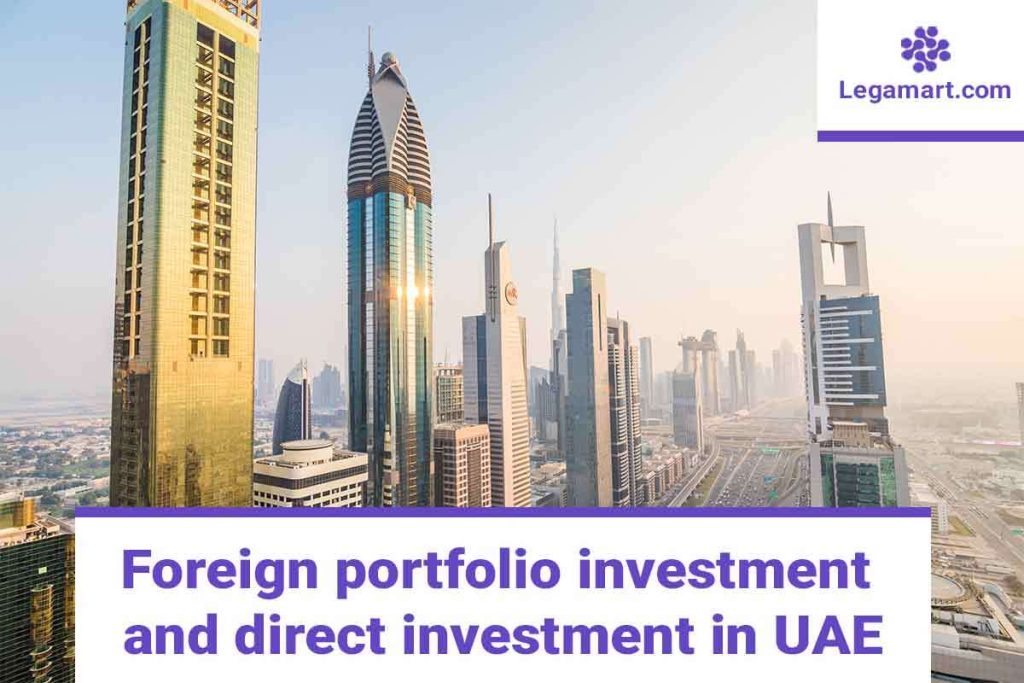- Introduction
- Foreign Portfolio Investment and Direct Investment in UAE
- What is Foreign Direct Investment in the UAE?
- How are various Emirates supporting FDI in the UAE?
- What is Foreign Portfolio Investment in UAE?
- Inflows and outflows of Foreign Portfolio Investment and Direct Investment in UAE
- Conclusion
- Frequently Asked Questions
Introduction
With 418 greenfield FDI projects, Dubai surpassed all other countries in luring FDI in 2021. Crown prince of Dubai and head of the executive council of Dubai, Sheikh Hamdan bin Mohammed bin Rashid Al Maktoum. HH Sheikh Hamdan thanked his Highness Sheikh Mohammed bin Rashid Al Maktoum, Vice President and Prime Minister of the United Arab Emirates and Ruler of Dubai, for his outstanding leadership and credited Dubai’s exceptional accomplishments and international standing to His Highness’s long-range vision.
On the other hand, foreign portfolio investment and foreign direct investment in UAE require a more in-depth understanding. Equities and other capital instruments held by investors in another country make up the foreign financial market (FPI). Depending on the market’s turbulence, it is relatively liquid but does not provide full investor ownership of a company’s assets.
FPI is one of the popular ways to invest in a foreign economy, along with foreign direct investment (FDI). For most economies, both FDI and FPI are significant funding sources.
An individual investor will likely use an FPI to invest in possibilities outside their home nation. Foreign Portfolio Investment and Direct Investment in UAE on a larger scale, foreign portfolio investment is reflected in a country’s balance of payments (BOP). The BOP calculates the value of money that moves from one nation to another during a single fiscal year.
Foreign Portfolio Investment and Direct Investment in UAE

Foreign Portfolio Investment in UAE grew by 1.225 Billion USD in December 2021 as opposed to 1.089 Billion USD the year before. The statistics peaked at 6.088 USD Billion in December 2005 and hit a record bottom of 0.000 USD Million in December 2003.
Annual Foreign Portfolio Investment is converted to USD by CEIC. Foreign Portfolio Investment in UAE is provided by the Central Bank of the United Arab Emirates in local currency. The average market exchange rate provided by the international monetary fund serves as the basis for currency conversions.
According to the most recent reports, accounts in the United Arab Emirates showed a positive of USD 47.978 billion in December 2021. In December 2021, Foreign Direct Investment (FDI) grew by 20.667 US Billion. In December 2021, United Arab Emirates Direct Investment Abroad increased by USD 22.546 billion.
What is Foreign Direct Investment in the UAE?

A stake in the business of a foreign project or company is known as a foreign direct investment(FDI) by a foreign business, investor, or government.
The phrase typically refers to a corporate decision to buy a sizable portion of a foreign company or buy it all together to extend operations to a new area. FDI is crucial to global economic integration since it forges strong, long-lasting ties between nations’ economies.
Target businesses or projects in economies with a trained workforce and above-average development potential for the investor are typically considered by companies or governments seeking foreign direct investment. The value of minimal government regulation is also standard. FDI typically involves more than just capital investments. It might also entail a provision of administration, technology, and tools. Foreign Direct Investment develops effective control over the foreign company, or at the very least significant influence over its decision-making, which is one of its fundamental characteristics.
In terms of its capacity to draw Foreign Direct Investment in UAE was placed 27th internationally in 2018 (up three positions from 2017), according to the UAE’s Economic Report 2019 (PDF, 18.5 MB) (FDI). Comparing 2018 to 2017, the volume of FDI inflow increased to around USD 10.385 billion.
The UAE held the top spot within the Arab world, receiving 36% of all FDI that entered Arab nations in 2018. With 35.5% of the region’s overall FDI inflow and around 22% of the total yearly Inflow of FDI to the Middle East and North Africa region, it was placed second in the West Asia region.
Are you looking to consider foreign direct investment in UAE? Then it’s inevitable that you seek professional legal advice. You can get legal advice from professional LegaMart lawyers that can guide you through legal and regulatory compliances and receive information about the market operations and situations in UAE. You can check our LegaMart directory and connect with a lawyer of your choice from the directory carefully chosen by the LegaMart team based on thorough documentation.
The primary Foreign Direct Investment (FDI) areas in the United Arab Emirates:
1. Wholesale and retail trade
2. Real Estate activities
3. Financial services and insurance
4. Manufacturing
5. Mining and quarry exploitation.
Switzerland, the United Kingdom, India, the United States of America, France, Austria, Japan, the Kingdom of Saudi Arabia, Kuwait, and the Netherlands are the top foreign investors in the United Arab Emirates. Federal Law governs Foreign Direct Investment (FDI) in the United Arab Emirates by Decree No. 19 of 2018.
The law seeks to improve the business climate, increase and broaden the production base, and draw foreign direct investment in cutting-edge knowledge, technology, and training.
Foreign investors are permitted to own up to 100% of the company. Before adopting such a law, foreign investors were only allowed to own 49% of the company’s shares, with their UAE-citizen partners holding the remaining 51%.
The Ministry of Economy’s Foreign Direct Investment Unit recommends foreign direct investment policies, provides an inviting framework for foreign direct investment, and develops a thorough database of investment statistics and information.
The Ministry of Economy chairs the committee on foreign direct investment. It is responsible for compiling a list of open industries and pursuits for FDI. The Positive list is the list of allowed activities. On the advice of the pertinent local and federal licensing bodies, the committee may authorize other FDI activities that are not on the Positive list.
The Positive List of Economic Activities Allowed for FDI
Ordinance No. 16 of 2020 concerning the formulation of the positive list for economic sectors and activities suitable for foreign direct investment and the percentage of its ownership was published by the UAE Cabinet in 2020.
On the Positive list, the resolution above lists 122 economic activities. These operations are legal with 100% foreign ownership. There are three categories underneath the positive list where an investor can start a business. As follows:
● Agricultural sector
● Manufacturing sector
● Services sector
The Negative list of FDI-Prohibited Activities
There are some industries and economic pursuits where FDI is prohibited. The following activities are in this list of negatives:
● Petroleum materials are explored and produced.
● Investigations, security, military industries, production of weapons, explosives, gear, electronics, and apparel for the military.
● Activities related to banking and financing, payment methods, and handling cash insurance services.
● Article 7 of the FDI law lists services related to Umrah, Hajj, and other activities.
Any of the aforementioned legal structures may be used for FDI projects:
- Private joint stock companies, including one-person (single-owner) companies.
- Limited liability companies.
How are various Emirates supporting FDI in the UAE?
The UAE is made up of seven emirates, and each of these emirates has its regulatory framework for FDI. A good example is the Dubai International Financial Centre (DIFC), which has rules and regulations governing FDI. These laws provide a business-friendly environment for investors and offer incentives such as tax exemptions and streamlined company registration processes. Here are some of the emirates that widely support FDI in the UAE;
Foreign Direct Investment in Abu Dhabi
Generally, Abu Dhabi offers a favourable environment for foreign direct investment, with various incentives and support for investors. For example, the Abu Dhabi Investment Office (ADIO) offers extensive support for investment in the emirate of Abu Dhabi. This is mostly achieved by facilitating domestic and foreign investor opportunities and providing several targeted programmes for private sector entities, including SMEs enablement and public-private partnerships.
Dual licensing regime between Abu Dhabi and Dubai extended entities to carry out commercialization outside free zones areas of operation across the emirate. This allows a range of incentives for foreign investors, including exemption from corporate and personal income tax.
Foreign Direct Investment in Sharjah
According to the Sharjah Investment and Development Authority (Shurooq), Sharjah received AED 4.4 billion (USD 1.2 billion) in FDI in 2020. This reflects the continued confidence of foreign investors in Sharjah’s economy. In addition, Shurooq launched Sharjah FDI Office to promote diversity regarding prospective investments in the emirate.
The office also educates investors on the processes involved benefits of investment and creates awareness of key sectors that fit their business outlines.
Foreign Direct Investment in Dubai
Foreign companies that intend to invest in Dubai have been accorded essential information and invaluable support by the Dubai FDI.
Additionally, Dubai FDI recommends guides and offers all-rounded practical assistance regarding key issues such as business management, deciding on the best legal structures and finding the appropriate scope of business.
What is Foreign Portfolio Investment in UAE?

Holding financial assets from a nation other than the investor’s own is referred to as a foreign portfolio investment (FPI). Stocks, ADRs, GDRs, bonds, mutual funds, and exchange-traded funds are all examples of possible FPI holdings.
FPI, along with foreign direct investment (FDI), is one of the popular ways for investors, particularly individual investors, to engage in a foreign economy.
FPI, in contrast to FDI, comprises passive ownership; investors don’t have any direct influence over businesses, ownership of the real estate, or ownership interests in companies.
Individual investors are more likely to use an FPI to invest in possibilities outside their home nation. On a larger scale, a country’s foreign portfolio investment is reflected in its balance of payments as part of its capital account (BOP). The BOP calculates the amount of money that moves from one nation to another throughout a fiscal year.
The goal of making and maintaining a hands-off, or passive, investment in a portfolio of assets is to earn a profit. Securities that can be included in a foreign portfolio investment include stocks, American depositary receipts (ADRs), or global deposits of corporations having headquarters outside of the investor’s nation. Holding also includes mutual funds or exchange-traded funds (ETFs) that invest in foreign or international assets, as well as bonds or other debt issued by these businesses or foreign governments.
Inflows and outflows of Foreign Portfolio Investment and Direct Investment in UAE

Despite the COVID-19 pandemic’s consequences, which harmed trade, investment, and global economies, foreign direct investments (FDI) into the United Arab Emirates surged by 4% in 2021 compared to 2020, reaching $20.7 billion. The total FDI influx grew and now stands at roughly $171.6 billion. The UAE has inked over 106 agreements with its trading partners to safeguard and attract investments.
A significant increase in Foreign Portfolio Investment and Direct Investment in UAE:
The value of the inbound foreign direct investment is expected to rise at a 4% annual rate, based on the UNCTAD World Investment Report 2022. Especially in comparison with $19.884 billion (AED 73.04 billion) in 2020, the cumulative amount of foreign investment inflows in 2021 was $20.7 billion (AED 76 billion).
Regarding FDI inflows to West Asian countries, UAE came in first
The UAE placed first in West Asia for Foreign Direct Investment (FDI), contributing 37% of the $55.5 billion in FDI that entered the region overall.
The UAE-led FDI inflows in the MENA region
The UAE was rated first in the MENA area for foreign direct investment (FDI), contributing 31% of the $66.6 billion in FDI that entered the region overall. In contrast, Foreign Portfolio Investment in UAE is on the same footing as Direct Investment in UAE.
In West Asia, the Middle East, and North Africa, the UAE ranked first in both inflows and outflows of foreign direct investment. In terms of FDI inflows, it was ranked 19th globally, and in terms of FDI outflows, it was ranked 17th globally in 2021.
Conclusion
Foreign portfolio investment and Direct Investment in UAE are defined in Article 4 of the foreign direct investment law, which specifies the foreign capital components. These funds transferred to the UAE through banks and financial companies with UAE licenses, profits from a foreign direct investment made in the UAE, and domestic and foreign economic and commercial securities.
Companies may move their earnings outside of the UAE, much like all other forms of UAE-incorporated businesses, including those incorporated under the FDI Law and Foreign Portfolio Investment in UAE, allowing for a flexible and alluring strategy for international investors. Under Foreign Portfolio Investment and Direct Investment in UAE, companies previously incorporated in the mainland UAE may convert into 100% foreign-owned corporations if all FDI Law requirements are met.
Despite the dangers, numerous global corporations with operations in the UAE have used this arrangement for many years. When W&I insurance is purchased, or warranties and indemnities are negotiated in a share purchase agreement, this risk typically excludes market standards. When an organization is incorporated following the FDI Law, such risks are no longer applicable.
From an M&A standpoint, if a third-party UAE shareholder is no longer a part of the share capital of a UAE company, there will be one less party to conduct due diligence on and negotiate with.
Additionally, there wouldn’t be any conflict with a local sponsor to consider when performing due diligence. Finally, if they can maintain complete control over the limited liability company’s administration and revenues. In that case, foreign investors will probably feel more at ease investing in the United Arab Emirates and creating or acquiring UAE firms.
That’s a wrap for this article. Hopefully, you gained valuable insight into the FDI in UAE. If you are looking to learn more about the full spectrum of legal considerations of FDI, then you can jump on to our LegaMart website, which allows you to connect with a legal expert for a quick meeting after you select the subject and jurisdiction and language preferred.
Frequently Asked Questions
What are the regulations and restrictions on FDI in the UAE?
The UAE restricts foreign ownership in specific sectors. For example, in the banking sector, a foreign investor must partner with a local company or individual. Equally, the UAE has capital requirements for foreign investors wishing to invest in real estate sectors.
How can foreign investors get started with FPI or FDI in the UAE?
Foreign investors interested in either FPI or FDI in the UAE can consult with a local partner or legal representative to get insights on the regulatory background and understand the future investment opportunities. On the other hand, the UAE has several government agencies that can provide information and support for foreign investors, including the Ministry of Economy and the Dubai Investment Development Agency (Dubai FDI).
What benefits does FDI in the UAE offer to foreign investors?
Foreign investors can access various benefits through FDI in the UAE. Some of these benefits include; -access to a large and growing market, a strategic location between Europe and Asia, a diverse workforce, and a politically stable and business-friendly environment. In addition, the UAE’s government also provides incentives for foreign investors, such as tax exemptions.




